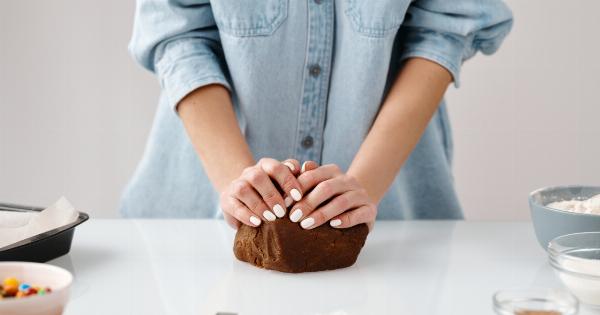Facial hydration is one of the most essential elements of a consistent skincare routine, regardless of skin type.
However, with numerous products available and diverse opinions on the best ingredients and methods, it can be challenging to build an effective hydration regimen. This comprehensive guide outlines the importance of facial hydration, the right ingredients to look out for, and the best practices to keep your skin moisturized and healthy every day.
What is Facial Hydration?
Facial hydration is the process of supplying the skin with adequate moisture and essential nutrients. The skin naturally produces oil and other substances that help maintain hydration levels.
However, environmental stressors like pollution, sun exposure, and seasonal changes can disrupt this natural process, leaving your skin dehydrated, dull, and prone to wrinkles.
Facial hydration, therefore, requires replenishing the skin with additional moisture either from external sources or by facilitating the skin’s natural production of oils.
Effective facial hydration should be a routine part of your skincare regimen to keep the skin looking youthful, glowing, and healthy.
The Importance of Facial Hydration
Facial hydration offers numerous benefits for maintaining healthy skin and addressing various skin concerns. Some of these benefits include:.
Skin protection
Hydrated skin has a healthy barrier function that protects the skin from external factors like pollution, UV rays, and harsh weather. When the skin is dehydrated, it loses its protective barrier, making it more susceptible to damage.
Slowing down skin aging
Dry skin is one of the leading causes of wrinkles, fine lines, and other signs of aging. Moisturized skin is plump and full, giving the skin a more youthful and radiant appearance.
Brightening the skin
Facial hydration can help brighten the skin and improve its texture. Hydrated skin is soft and supple, which gives it a more even complexion.
Improved skin elasticity
When the skin is properly moisturized, it can stretch and bounce back without damage. Hydration helps improve skin elasticity, making it less prone to sagging.
Facial Hydration Ingredients to Look Out For
Not all moisturizers are created equal, and some may even be ineffective at hydrating your skin. To build an effective facial hydration regimen, it is essential to understand the key ingredients that will keep your skin moisturized and healthy.
Hyaluronic Acid
Hyaluronic acid is a natural compound that can hold up to 1000 times its weight in water. It draws moisture from the air and other sources, helping to keep the skin hydrated and plump.
It is suitable for all skin types and is found in numerous skincare products like serums, moisturizers, and sheet masks.
Glycerin
Glycerin is a humectant that helps draw water into the skin. It hydrates the skin and helps to prevent dryness and flakiness. Glycerin is found in a variety of skincare products and is suitable for all skin types.
Ceramides
Ceramides are compounds found within the skin’s natural barrier, which helps it retain moisture and protect against external factors.
Ceramides in skincare products help to keep the skin’s moisture barrier strong and preserve hydration levels.
Niacinamide
Niacinamide is a form of vitamin B3 that helps to improve the skin’s moisture barrier, reduce inflammation, and brighten the skin. It is suitable for all skin types and is commonly found in serums and moisturizers.
Ways to Introduce Facial Hydration into Your Skincare Routine
One of the keys to building a successful facial hydration regimen is to adopt consistent and effective routines. Here are some of the ways to incorporate facial hydration into your daily skincare routine.
Use a gentle cleanser
Using a gentle cleanser to wash your face helps to clear dirt, oil, and pollutants that may clog your pores or disrupt your skin’s natural moisture balance. Harsh cleansers can strip the skin of its natural oils, making it dry and dull.
Opt for gentle cleansers that are free of sulfates and fragrances to keep your skin moisturized and healthy.
Apply a toner
A toner helps to hydrate and balance the skin’s pH levels. It helps to prepare the skin for the next steps and maximizes the benefits of other skincare products. Look for hydrating toners that contain humectants like glycerin or hyaluronic acid.
Use a serum
Serums are lightweight formulas that deliver concentrated active ingredients to the skin. They offer numerous benefits, including improved hydration, brightening, and anti-aging.
Apply a hydrating serum with ingredients like hyaluronic acid, niacinamide, or ceramides to help build strong moisture levels in your skin.
Moisturize
Even if you have oily skin, moisturizing is an essential part of facial hydration. It helps restore your skin’s natural hydration and protect it from external factors.
Choose moisturizers with hydrating ingredients suitable for your skin type, like hyaluronic acid or ceramides.
Use a facial spray or mist
Facial sprays and mists can be incredibly refreshing, especially for dry or dehydrated skin. They can be used to hydrate and refresh the skin throughout the day and help retain moisture levels.
Look for mists that contain hydrating ingredients like aloe vera or rose water.
Use a sheet mask
Sheet masks are soaked in hydrating serums and quickly deliver potent hydration to the skin. They are a great way to boost your skin’s hydration levels once or twice a week, especially if your skin needs extra hydration.
Ensure to choose sheet masks with hydrating ingredients like hyaluronic acid or ceramides.
Conclusion
Facial hydration is critical for keeping the skin healthy, youthful, and vibrant. Proper facial hydration comprises using the right ingredients and adopting consistent skincare routines that fit your skin type.
By incorporating gentle cleansers, toners, serums, moisturizers, and other hydrating products and practicing good lifestyle habits, you can maintain a glowing and healthy complexion.





























